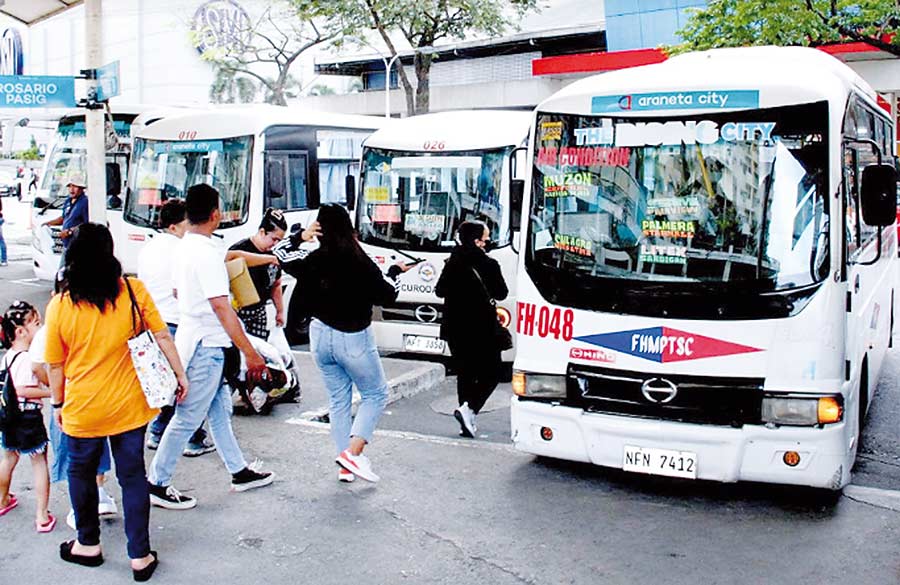Finance Secretary Ralph Recto cautioned that funding projects from the unprogrammed appropriations list through additional borrowings could negatively affect the economy, saying available idle funds from state corporations should be used instead.
At a Senate Committee hearing yesterday, Recto said Congress has determined there is another way to fund the unprogrammed appropriations, aside from new taxes or adding debt, and that is by dipping into the dormant funds of government-owned and -controlled corporations (GOCCs).

“Our cost-benefit analysis shows that the projects to be funded by the Unprogrammed Appropriations will hike real (gross domestic product) GDP growth by 0.7 percent, increase an additional P23 billion to P24.4 billion in revenues and create hundreds of thousands of jobs,” Recto said.
Implementing these projects will help the government hit its target of six to seven percent growth for the year, he said, especially after Typhoon Carina ravaged the country.
According to the Recto, many of the projects are Official Development Assistance or foreign assisted projects, under which the government is committed to honor its financing obligations. Failing to do so means paying the commitment fees and interests on the loans.
“If we deny them of funding, the implementation is delayed, and we rack up opportunity costs that will be borne by the public deprived of the conveniences such projects bring,” Recto said.
He warned funding the projects with additional borrowings would increase the country’s deficit-to-GDP ratio from 5.6 percent to 6.4 percent in 2024, and also hike the debt-to-GDP ratio from 60.6 percent to 61.4 percent this year.
This means the country will have to pay an additional P12.7 billion in interest payments every year.
“In effect, we will not hit our Medium-Term Fiscal Program. And this may put pressure on our investment grade rating,” Recto said.
A credit rating downgrade will increase the country’s borrowing rates by around one full percentage point, translating to additional interest payments of at least P15 billion annually.
In addition, a downgrade will generate significant uncertainties that may destabilize the country’s macroeconomic environment and jeopardize the Philippines’ recovery efforts from the pandemic, the Department of Finance said.
During the hearing, amid criticisms on the move to use the Philippine Health Insurance Corp.’s (PhilHealth) unutilized government subsidies, Recto set the record straight that the sweeping of GOCCs’ idle funds follows Congress’ order under the law.
Recto emphasized the funds will be exclusively used for the list of projects identified under the Unprogrammed Appropriations as mandated by the 2024 General Appropriations Act.
He also assured the public the funds will benefit health-related projects, which in fact enabled the national government to release the P27.5 billion representing 5.04 million claims of long-overdue benefits and allowances of frontliners during the pandemic.
The projects under the list of Unprogrammed Appropriations include but are not limited to the Davao City By-Pass Construction Project; Samal Island Davao City Connector Project; Panay-Guimaras-Negros Island Bridges; Bataan-Cavite Interlink Bridge Project; Metro Manila Subway Project; and the Salary Standardization VI for government employees.
As discussions for the 2025 National Expenditure Program commence, Recto sought Congress’ help in carefully choosing projects in the budget that create the most economic growth and more jobs.
“But please curate the expenditure program without inflating the unprogrammed appropriations side, because this distorts the country’s fiscal plan,” he said.
He called on the Executive and Legislative branches to operate within the parameters of the Medium-Term Fiscal Program that reduces the country’s deficit and debt gradually, creates jobs and decreases poverty in the process.





